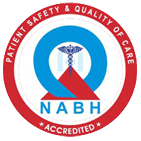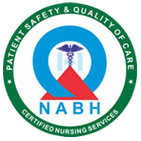FOLLOW THE MISSION HOSPITAL




References in this document to Coumadin®, the brand name used by Bristol-Myers Squibb to market its product, warfarin, are made solely for the ease of patient identification. This reference does not constitute an expressed or implied endorsement of this brand by the Cleveland Clinic. Other equivalent brands of anticoagulant medications may be available and appropriate for patient use.
* Throughout this document, the anticoagulant medication will be referred to by the commonly used generic name of warfarin.
The better you understand your medication, the more successful your anticoagulation therapy will be and the less likely you are to have complications from the medication.
If you have any questions about your medication, please discuss them with your health care provider (doctor, pharmacist, or nurse).
Your doctor has prescribed an anticoagulant medication. "Anti" means against and "coagulant" means causing blood clotting. Warfarin is a type of anticoagulant medication that helps prevent clots from forming in the blood.
You have been prescribed warfarin because your body may be making blood clots or you may have a medical condition known to promote unwanted blood clots. Blood clots can move to other parts of your body and cause serious medical problems. Warfarin will not dissolve a blood clot. However, over time the blood clot may dissolve on its own. Warfarin may also prevent other clots from forming.
In order for your health care provider to determine the correct dose of warfarin, it will be necessary for you to have blood tests. The tests are performed in a laboratory or anticoagulation clinic, usually once a week to once a month, as directed by your doctor.
The prothrombin time (PT or protime) test is used to calculate your International Normalized Ratio (INR). Your INR will help your health care provider determine how fast your blood is clotting and whether your medication dose needs to be changed.
Note: Because your dosage might change from time to time, it might be helpful to use "Your Personal Dosage Calendar" at the end of this handout.
Illness, diet, medication changes, and physical activities may affect your INR. Tell your health care provider about changes in your health, medications (prescription and over-the-counter) or lifestyle so appropriate dosage adjustments can be made.
Coumadin brand tablets are round and scored, which means they can be broken in half. Each tablet color represents a different strength. The strength of the tablet is measured in milligrams (mg) as follows:
Other brands of warfarin should have the same colors and strengths as the Coumadin brand tablets. However, other brands of warfarin tablets may have a different shape or appearance. For example, they may be oval or square. The Coumadin ®/warfarin 10 mg tablet is the ONLY dye-free dose of the drug for those who may have a reaction to the drug’s dye.
Take your warfarin dose as instructed once a day. Take it at the same time every day. Some physicians recommend taking your warfarin early in the evening (such as between 5:00 and 6:00 p.m.). The evening dose is recommended in case the INR is too high and requires a dose adjustment. Warfarin can be taken with or without food.
Do Not Take a Double Dose to make up for a missed dose. Also, never change your dose without first discussing the change with your doctor.
As with any medication, store your warfarin at room temperature, away from extreme cold, heat, light, or moisture. Bathroom cabinets are usually NOT suitable for storing medications because of dampness. All medications, including warfarin, should always be kept out of the reach of children and pets.
It is important that you follow these precautions when taking warfarin to reduce the risk of side effects and improve the effectiveness of your medication.
Many medications and dietary supplements can affect the way warfarin works. These might include:
Before taking any new medication, including over-the-counter medication or medication prescribed by another doctor or dentist, check with the doctor who monitors your warfarin medication. Your warfarin doctor may need to adjust your warfarin dosage or may recommend another medication less likely to interfere with warfarin.
Many doctors recommend that you avoid pregnancy while taking warfarin. It you are taking warfarin and are planning to become pregnant, talk with your doctor about the possible risks and ways to reduce those risks.
Tell your doctor right away if you become pregnant or think you might be pregnant.
If you are taking warfarin, you should avoid all estrogen-based forms of contraception, such as oral contraceptive pills and products such as NuvaRing ®.
Before any treatment is provided, tell all your doctors and dentists that you are taking warfarin. Before having a surgical or dental procedure, you might need to have a blood test, and you might need to stop taking warfarin for a few days.
Do not stop warfarin without conferring with the doctor who monitors your INR.
Check with your doctor before you travel. Before you go on vacation, you may need to have a blood test and your warfarin dose may need to be adjusted.
While traveling, carry your medications with you at all times. Do not put medications in checked baggage, and do not leave your medications in the car.
Call your doctor if you notice any of the following signs of bleeding or illness that can affect the way your warfarin works:
If you notice any of these symptoms, your doctor might want to do a blood test, stop the warfarin, or prescribe medicine to stop the bleeding.
Vitamin K is needed for normal blood clotting. When you are taking warfarin, large changes in the amount of vitamin K in your diet may affect the way warfarin works.
It is important to keep your diet consistent. If you plan to make major changes in your diet, please inform your health care provider. Avoiding vitamin K containing foods is not necessary.
The foods listed below are known to have higher amounts of vitamin K per serving. Although it is important to be aware of foods high in vitamin K, it is also important that you eat a well-balanced diet.
Green, leafy vegetables
Spinach; kale; collard, mustard and turnip greens; endive, lettuce (Boston, bib, head, red leaf and romaine)
Cruciferous vegetables
Broccoli, Brussels sprouts, cabbage, asparagus
Other vegetables
Frozen peas, okra
Do not start consuming the following herbal teas and supplements because they may affect the INR, causing it to be too high or too low.
Herbal teas
Herbal supplements
*Certain foods like celery, clove, garlic, ginger, and parsley are usually safe if they are used in small amounts in cooking or as a seasoning. They should not be used in the form of a supplement.
Do not start taking the following unless specifically approved by your physician:
Do NOT stop or start taking any medications, herbal products, natural remedies, or nutritional supplements without first talking to the doctor who monitors your warfarin medication.
Some medications may increase or decrease the anticoagulant effect of warfarin and therefore, may increase your risk for side effects. If you take any of the medications listed, your warfarin dosage may need to be adjusted.
You might need to get blood tests more often when you stop, start, or increase the dose of medications that are likely to affect the way warfarin works. Talk to your doctor about any changes in your medications.

A Unit Of Durgapur Medical Centre Pvt. Ltd.